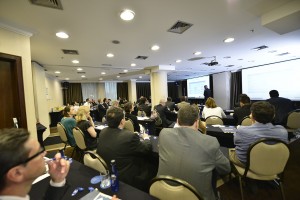
The event was attended by the Federal Revenue Secretary, Jorge Rachid, and tax specialists
The ETCO-Brazilian Institute of Ethical Competition held in São Paulo, on February 15, the workshop A Ampliação do Simples Nacional. The event brought together business representatives, tax administrators and economists specialized in taxation with the aim of analyzing the Bill of Law of the Chamber (PLC 125-2015) that expands billing limits and introduces changes in the rules of Simples Nacional and Individual Microentrepreneurs (MEI) .
The meeting included lectures by the Federal Revenue Secretary, Jorge Rachid; Luciano Garcia Miguel, representing the Finance Secretary of São Paulo, Renato Villela; economist Bernard Appy, director of the Center for Tax Citizenship; and economist Fernando Holanda Barbosa, from the Brazilian Institute of Economics of the Getúlio Vargas Foundation (Ibre / FGV). The four speakers criticized the text of PLC 125 that is about to be voted on in Congress.
The mediation was by ETCO president Evandro Guimarães, who explained the objective of the meeting: “Brazil needs to better understand what is being proposed in this PLC, what are the impacts on the business environment and on the country. Our intention was to bring together subject matter experts to share their views and help deepen that understanding ”.
The following are some of the main points of the project and the criticisms of the speakers:
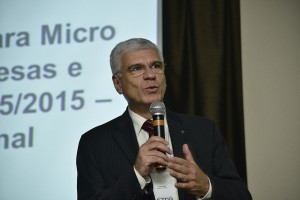 1) Progressive expansion of the revenue limit to fit into the National Simple from the current R $ 3,6 million to R $ 14,4 million in 2018 for federal taxes (for ICMS, state, and ISS, municipal, the limit remains at R $ 3,6 million).
1) Progressive expansion of the revenue limit to fit into the National Simple from the current R $ 3,6 million to R $ 14,4 million in 2018 for federal taxes (for ICMS, state, and ISS, municipal, the limit remains at R $ 3,6 million).
Second Jorge Rachid, this expansion will cause an annual loss of R $ 16,1 billion in federal revenue as of 2018, an opposite effect to the fiscal effort necessary to balance public accounts.
In the opinion of bernard appy, even within the current limits, Simples Nacional does not fulfill one of its initial promises, which was to favor companies that suffer the most from unfair competition from the informal economy. These companies usually have a low profit margin, which makes it impossible to join the program, which calculates the tax on billing. "Simples benefits those who need it least, which are companies with a high profit margin and entrepreneurs with high personal income," he said. According to him, the expansion of the billing limit will further increase this distortion.
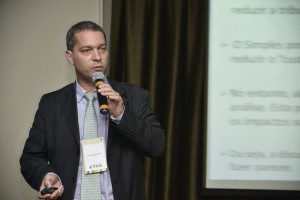
According to a Fernando Holland Barbosa, no other country in the world has a benefit program for small businesses with a limit as high as that of Simples Nacional today. He says that the tax waiver of Simples reached R $ 2015 billion in 72,4. "The project is expensive and has had little impact on its purpose of reducing informality," he said. "The increase in the limit will only worsen this situation".
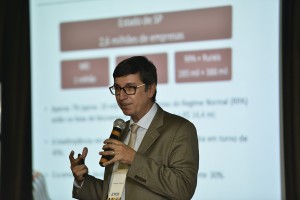 Although PLC 125 maintains the billing limits for ICMS and ISS at R $ 3,6 million, the São Paulo government representative stated that the increase in the limit for federal taxes will cause a reduction in federal transfer funds to states and municipalities. "There will be significant losses in these transfers," he said Luciano Garcia Miguel. The IRS estimates that the reduction could reach R $ 7,5 billion per year from 2018.
Although PLC 125 maintains the billing limits for ICMS and ISS at R $ 3,6 million, the São Paulo government representative stated that the increase in the limit for federal taxes will cause a reduction in federal transfer funds to states and municipalities. "There will be significant losses in these transfers," he said Luciano Garcia Miguel. The IRS estimates that the reduction could reach R $ 7,5 billion per year from 2018.
2) Increase in the Individual Microentrepreneur (MEI) billing limit from R $ 60 thousand to R $ 90 thousand per year
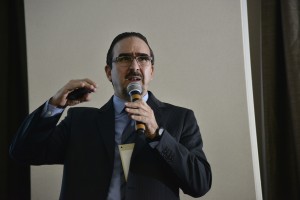 The Economist bernard appy finds raising the MEI limit “unnecessary and unjustifiable”. He sees a contradiction in the criteria that tax salaried workers and MEI participants. “Those who work with a formal contract and earn R $ 5 are taxed in the highest income tax bracket, 27,5%. If you receive the same amount as MEI, you pay 1% tax ”, he compared. "Brazil needs to decide if those who earn R $ 5 a month are rich, as they think the Income Tax is, or if they are poor, as the MEI proclaims."
The Economist bernard appy finds raising the MEI limit “unnecessary and unjustifiable”. He sees a contradiction in the criteria that tax salaried workers and MEI participants. “Those who work with a formal contract and earn R $ 5 are taxed in the highest income tax bracket, 27,5%. If you receive the same amount as MEI, you pay 1% tax ”, he compared. "Brazil needs to decide if those who earn R $ 5 a month are rich, as they think the Income Tax is, or if they are poor, as the MEI proclaims."
The São Paulo tax representative stated that raising the limit will reduce the tax revenue of states and municipalities. "The state of São Paulo will lose R $ 100 million a year", said Luciano Garcia Miguel.
3) Inclusion of part of the alcoholic beverage industry and wholesale trade in Simples
The Secretary of Revenue foresees a reduction in tax collection in this segment. Second Jorge Rachid, companies in the sector, which today pay high rates, should opt for Simples Nacional to pay less taxes and may even split into several companies to remain within the required billing limits.
The Economist bernard appy cited another loss. According to him, in the beverage segment, taxation also has the function of controlling demand. Lower taxes encourage alcohol consumption.
4) Inclusion of small credit companies in Simples Nacional
The four speakers stated that this inclusion will represent the legalization of the loan without control by public agencies. "It will be the institutionalization of loan sharking", criticized the economist bernard appy.
The Economist Fernando Holland Barbosa he pointed out that PLC 125 does not establish an interest limit or control by the Central Bank on loans offered by the benefited institutions. "An absurd", he lamented.











